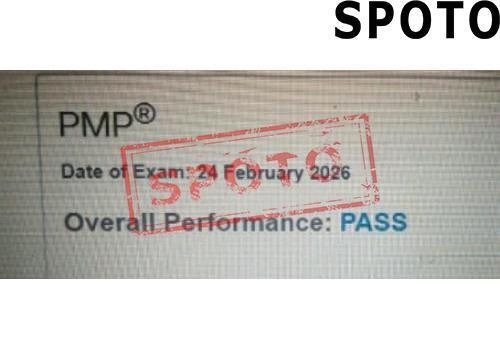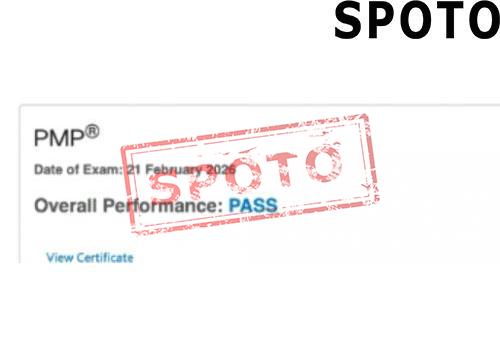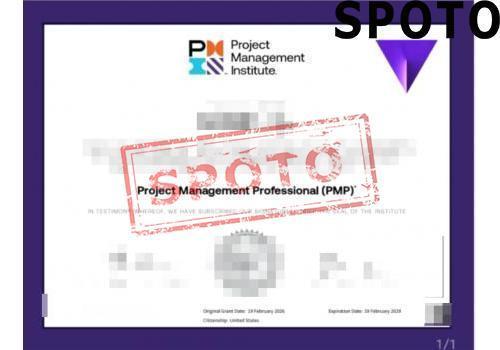
Table of Contents
Project managers play a crucial role in the organizations they work for. They guarantee that projects are completed on schedule and within budget. Learn what credentials and abilities a successful project manager must possess.
Any degree that can be used to enter general project management, project management, or business courses is helpful. An undergraduate degree in a similar field will be useful for project management positions that are more specialized, such as those in engineering or IT, where subject knowledge is more crucial.
Nowadays, practically every organization needs project management to successfully handle various projects from planning through scheduling, budgeting, and completing the final result. Being knowledgeable about project management has become essential. The top 5 project management training courses listed below are a need for any project manager who wants to succeed at work.
Project Management Certification Trainings:
It's no secret that more organizations rely primarily on project management's efficiency. Businesses will lag behind rivals and run the danger of missing out on several cutting-edge developments if project managers continually fall short of expectations.
Because of this, more businesses will only recruit project managers who have a set of credentials. L&D executives must thus emphasize the need to train their project managers for important certification programs.
Training options for project managers:
Because of the different nature of project labor, there are various projects. Project managers must be aware of several methods for managing these projects to handle them. As a result, project managers need to be well-versed in project management approaches. To compare, choose, and use the appropriate methodology for your project, you might be familiar with various approaches.
The development of specific project management abilities is the exclusive emphasis of this course, which will help you produce projects of a higher caliber.
With the help of this course, you can manage every project efficiently and by the standards set by the Project Management Institute (PMI).
You will learn how to handle project management offices wisely through this course and how to align them with vital helpful techniques.
This course will provide you with the advanced project management skills you need to manage even the most challenging projects.
This project management course is designed to assist you in identifying every type of risk that might arise while managing a project.
- A certification program in project management skills:
- The Project Management Professional (PMP):
- Project Management Office:
- Advanced Project Management Accreditation:
- Project Risk Management Certificate:
What is a project manager's role?
Project managers are responsible for several tasks, but their massive objective is to plan, procure, and monitor the project implementation. Since their abilities to manage people and procedures are applicable in various professional settings, project managers frequently operate in vast sectors. The following tasks are possible for project managers to complete:
- Create concepts and project plans that can be carried out.
- Make a plan of action for finishing a project and assign particular tasks to be completed.
- Create a team to handle the project's duties.
- Oversee project teams and ensure all team members understand and carry out their responsibilities.
- Work with the project's potential stakeholders.
- Manage the financial elements of a project, including the development of a project budget.
- To the best of their ability, working on a project, team members should get trained and coached.
- Present the finished project to the management or clients.
Project Management Abilities
Project management:
Understand project management, which can be broken down into four core competencies:
- Time (the length of time it takes to complete the project);
- Cost (the amount of money invested);
- Scope (the amount of work the project requires) and
- Quality (meeting the needs of the client).
Business:
Of course, project management has a commercial component. It involves understanding profit and loss, project financial expertise, and the ability to create and adhere to a project budget.
Administration:
Leading a project entails being a leader. Leadership is not a technical talent--it can be studied and taught. Being able to manage problems, communicating clearly both orally and in writing, negotiating effectively, being persuasive, and managing teams are some examples of leadership qualities.
Decision-making:
Even when under duress, project managers make swift judgments that are successful. To keep the project moving forward, they carefully consider the benefits and drawbacks of various possibilities.
Team-building:
Project managers create and direct productive teams. For this, it's necessary to be able to choose the best candidates for the position, handle disagreements, and establish an effective team dynamic.
Managing time:
Effective time management is a skill that project managers use to keep the project moving forward. They successfully distribute work, prioritize jobs, and make the most of the resources.
The Importance of Project Management Training:
There are several types of project managers. Because of this, several certificates need extensive experience and involvement in project management training. Regardless of the business, project managers encounter various difficulties while attempting to implement creative ideas.
Leaders should provide access to project management online courses that instruct people how to cooperate: Rather than just focusing on getting workers certified,
People Issues:
Project managers are tasked with coordinating the actions of many varied teams, especially in large organizations. Whether there are personality clashes or departmental divisions, project managers must foster a work atmosphere that encourages polite conversation and high output.
Resource Management:
To guarantee the success of a project, time and human resources must be handled effectively. It is crucial to have a thorough strategy that supports the project's overall success since there are more resources to manage.
Budgeting:
Project managers are unlikely to choose the budget. Instead, they will be assigned a number that they must precisely follow. All project managers must be able to reconcile producing high-quality work with staying within their allocated budget.
Scope creep:
Every other area of project management can be impacted by this one problem. It is the responsibility of project managers to control the scope when stakeholders join the mix and ask for adjustments to the project. Scope creep occurs so gradually that budget and resource depletion go unnoticed until it is too late. It's the main reason why initiatives go off track and cost money.
Teams that complete projects without specialized PMs frequently lack focus and have unclear goals. The project might be finished, but it won't be nearly as effective for the company. Businesses may develop leadership and strategic skills that will streamline execution by offering the appropriate project management courses.











